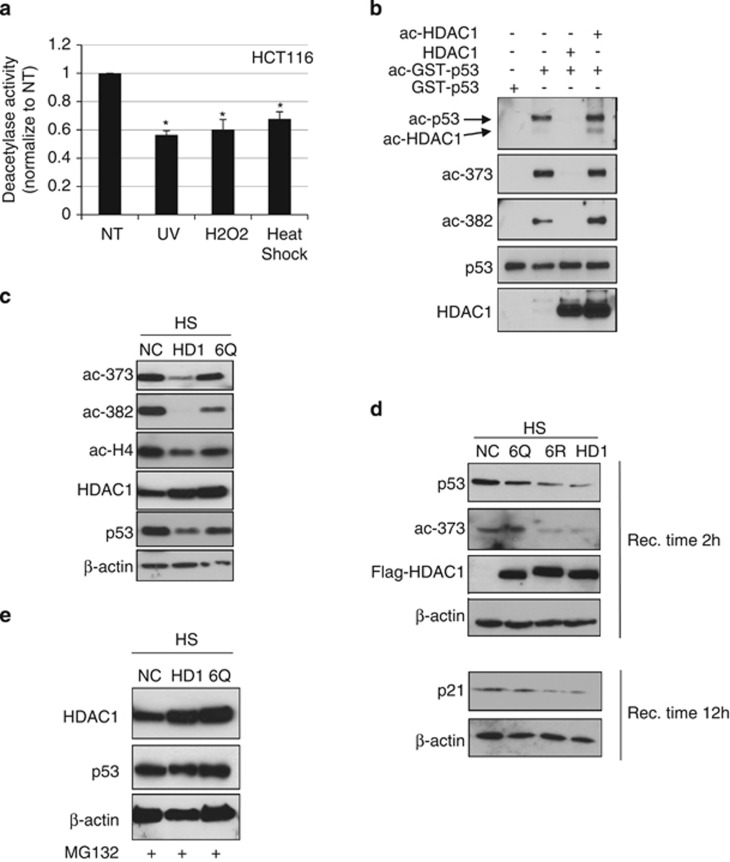Figure 2.
Acetylated HDAC1 does not deacetylate p53. (a) The HCT116 cells were treated with various stresses, HDAC1 proteins were immunoprecipitated and the bound proteins were subjected to deacetylation assay. For UV treatment, cells were exposed to 80 J/m2 UV. For H2O2 treatment, cells were incubated with 100 μM H2O2 for 2 h. For heat-shock treatment, cells were treated at 42 °C for 1 h and then recovered at 37 °C for 2 h. The deacetylase activities were normalized to non-treatment (NT) control (mean±S.E.). *Significant difference compared with the non-treatment control (P<0.05 by Student's t-test). (b) Flag-HDAC1 and GST-p53 were acetylated by p300 in vitro. The acetylated p53 is then deacetylated by HDAC1 or ac-HDAC1. The reaction mix is subjected to western blot with indicated antibodies. (c) HCT116 cells were transfected with wild-type HDAC1 or ac-HDAC1 mimic mutant 6Q. The cells were treated with heat shock at 42 °C for 1 h and then recovered for 2 h. (d) HCT116 cells were infected with HDAC1, HDAC1 6R or HDAC1 6Q expressing retrovirus. The stable cells were treated with heat shock at 42 °C for 1 h and then recovered for 2 or 12 h as indicated. The cells were then harvested and subjected to western blot with indicated antibodies. (e) HCT116 cells were treated with 10 μM MG132 for 2 h, followed by heat shock at 42 °C for 1 h, and then recovered for 2 h. The cell extracts were harvested and subjected to western blot with indicated antibodies

